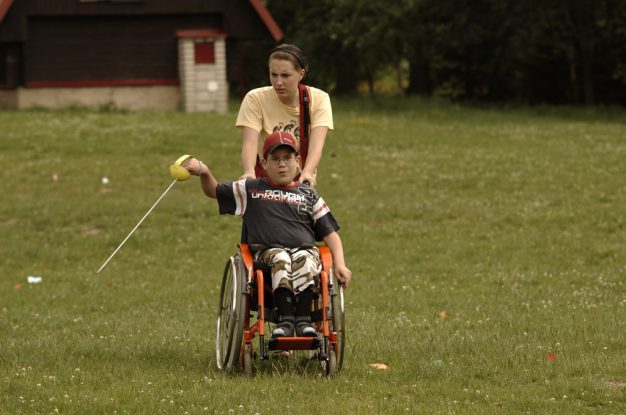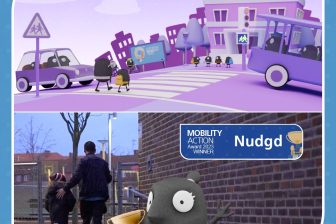
How can we ensure the right to play for disabled children in Scotland?
Disabled children are more likely to be financially and socially disadvantaged than their non-disabled peers and, with child poverty in Scotland on the rise, their right to play and enjoy their own cultural lives is increasingly under pressure. Here, inclusive play consultant Eric Mitchell calls for a sustained commitment to the strategic approach to ensure quality and equality in play opportunities for all children.
We know, understand and accept that every child has the right to play as enshrined in Article 31 of the United Nations Convention on the Rights of the Child (UNCRC). We should also know, understand and accept that EVERY child should fully enjoy their human rights and fundamental freedoms on an equal basis with other children as stated in Article 7 of the United Nations Convention on the Rights of Persons with Disabilities (UNCRPD). Yet, in 2016, we are experiencing widening inequality.
Amongst children living in Scotland, 22% are living in relative poverty (after housing costs) up from 19% in previous years [1] Families with a disabled child are disproportionately more likely to live in poverty with this figure rising to 29% of households [2] .
In light of this startling evidence, what are we doing in Scotland to ensure disabled and other disadvantaged children have access to good quality and equitable play experiences?
Play Strategy for Scotland
October 2013 saw the Scottish Government publish a long awaited “Play Strategy for Scotland: Our Action Plan Play [3]. Many of us in the sector had been campaigning for this, and more, in the preceding years. The vision for Scotland is ’to be the best place to grow up. A nation which values play as a life-enhancing daily experience for all our children and young people; in their homes, nurseries, schools and communities’.
The strategy was explicit that ‘children of all ages, stages and abilities should have the opportunity to realise their right to play without discrimination of any kind’. With this strong commitment to ensure children who require ‘special attention in order to realise their rights under Article 31 [4], focused work was commissioned resulting in the publication in March 2015 of “Playing with Quality and Equality; a review of inclusive play in Scotland [5].
The core finding from the research with almost 1000 children, young people and adults throughout Scotland was that disabled children and young people face multiple barriers to being able to play. This is amplified by the intersections between ability, gender, ethnicity, financial circumstances and living arrangements, resulting in an inequality of play opportunities and experiences
Quality and Equality
Eight interlinked core themes emerged in the course of the Review. It was determined that ‘a connected approach to quality and equality in play would attempt to reduce the negative factors which hold back high quality play opportunities while really trying to build on positive practice and examples which exist’ (Theresa Casey, March 2015). Quality matters.
Following publication of the Review, there was evidence of a growing commitment to play in Scotland from Ministers and Government. We saw further investment in the play sector via Inspiring Scotland’s ‘Go 2 Play Fund, and a national play strategy conference in partnership with Play Scotland, which brought together key decision makers from a wide range of sectors at local and national levels.
However since then, we have experienced significant change in politics at Scottish, UK, European and global levels. This in turn has brought increased challenge, uncertainty and instability, all having a profound impact on disabled and disadvantaged children throughout Scotland.
It is therefore essential that we do not lose the momentum and commitment on the importance of play for every child. More than ever, fresh consideration needs to be given to the strategic nature of the findings of ‘Playing With Quality and Equality’ over and above the practical elements of the recommendations. Where can we have the biggest impact to reduce play inequalities allowing all children to realise their fundamental human right to play?
Eric Mitchell
Freelance consultant specialising in play, disability and inclusion.
(This article was originally published on The Importance of Play blog)
Photo: Honza Soukup




